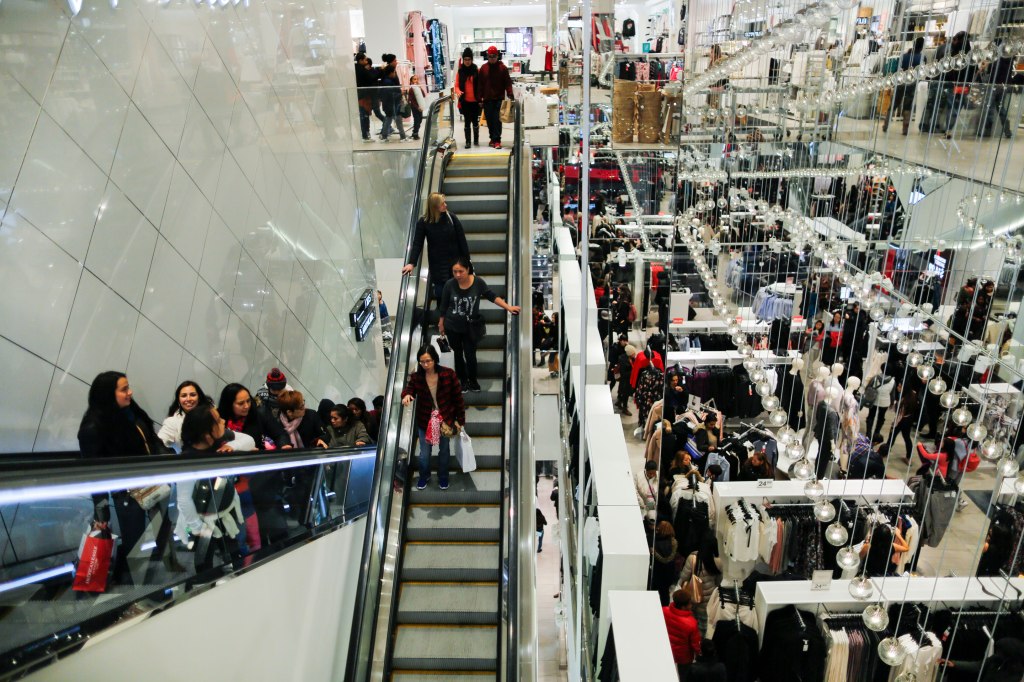In 2007, Alan O’Herlihy, who previously worked with large SAP installations as well as retail, set out to find a way to help retailers minimize “shrinkage,” or where a store has fewer items in stock than in its recorded inventory. He settled on computer vision as the solution to the problem, and founded a company, Everseen, to commercialize the technology.
Everseen — which uses computer vision to, among other things, attempt to prevent theft at self-checkout counters — today announced that it raised €65 million (~$71.32 million) in a Series A round led by Crosspoint Capital Partners, a previous investor in the startup. The new funds bring Ireland-based Everseen’s total raised to nearly $90 million, which O’Herlihy says is being put toward scaling the startup’s business with a “targeted” roadmap.
“We’re experiencing significant demand for our technology from retailers grappling with the dual impact of declining customer spending and rising operational losses, including shrinkage,” O’Herlihy said. “The retail industry is also facing challenges such as labor shortages and labor cost inflation, making our technology even more valuable in addressing these issues.”
Shrinkage in particular can be a serious hit to retailers’ bottom lines, to O’Herlihy’s point. In 2017, stores lost an estimated 1.33% of revenues to shrinkage, totaling an estimated $47 billion, according to the National Retail Federation.
Everseen uses a combination of ceiling-mounted cameras and computer vision software to — in theory — reduce theft at the point of sale in brick-and-mortar stores. According to O’Herlihy, Everseen’s algorithms can detect and track objects (e.g. SKUs) of interest, analyzing how they interact and recognizing “actions of interest” performed by shoppers and sales associates.
Beyond theft, Everseen claims to be able to “know” when items on a shelf are almost out of stock and “pinpoint processes needing immediate attention to help staff solve issues, improve trends and reduce variances.” The platform, which processes video of hundreds of millions of products and tens of millions of customer interactions every day, can connect with a retailer’s existing tools such as an order management system to provide insights and near-real time analytics.
“All of these elements serve as input, allowing our solution to ‘nudge’ a customer to self-correct or instruct a store associate to engage and aid the customer in question,” O’Herlihy explained. “Our goal is to stop and recover loss, enable the retailer to intervene, promote great customer interactions and create fluid processes while improving the overall customer experience and positively impacting the bottom line.”
Everseen hasn’t always succeeded in this mission. Workers at Walmart, which was once a major Everseen customer, told Wired in a 2020 that the system often misidentified innacuous behavior as theft and failed to stop actual instances of stealing.
In response to the allegations, Walmart said that it made “significant improvements” to its Everseen system that resulted in fewer alerts overall. But the relationship between the two companies deteriorated soon after. Everseen sued Walmart, claiming the retailer had misappropriated the Irish firm’s technology and then built its own product similar to Everseen’s. (Everseen and Walmart settled in December 2021.)

It’s tough to gauge the accuracy of any system without access to its back end. But history has taught us that computer vision tech — especially tech designed for anti-shoplifting purposes — is susceptible to bias and other flaws.
Consider an algorithm trained to spot “suspicious” activity from a shopper. If the dataset used to train it was imbalanced — say, contained an overwhelming amount of footage of Black shoppers stealing — it’d likely flag the overrepresented shoppers more often than others.
Some AI-powered anti-theft solutions, moreover, are explicitly designed to detect shoplifting track gait — patterns of limb movements — among other physical characteristics. It’s a potentially problematic approach considering that disabled shoppers, among others, might have gaits that appear suspicious to an algorithm trained on video of able-bodied shoppers.
But assuming for a moment that Everseen is largely bias-free, there’s still the elephant in the room with every camera-based tracking system: privacy. In an email exchange, Crosspoint’s Greg Clark mentioned using Everseen’s tech to possibly capture purchasing intent and behavior to “market to specific demographics,” a touchy prospect, to be sure.
I asked O’Herlihy about how it treats customer data, including any footage it records of shoppers and store associates. He said that Everseen defers to customers on data retention policies and — for what it’s worth — is “fully compliant” with GDPR.
Whether shoppers — or associates, for that matter — implicitly trust Everseen is another question. But the potentially thorny ethical issues don’t appear to be dissuading customers from signing up for the startup’s services.
O’Herlihy claims that Everseen counts over half of the world’s top 15 retailers among its customers, with deployments in over 6,000 retail stores and at more than 80,000 checkout lines.
“The speed of adoption of this transformational technology increased during the pandemic as retailers looked for different ways to sell and shoppers looked for different ways to buy,” O’Herlihy said. “In terms of tech spend, we have seen a reallocation of budgets as the challenges for retailers are evolving with tackling shrink being viewed as a top priority in the industry … Everseen is squarely aligned with current trends.”
In a general sense, it’s true that retailers are embracing — or at least showing an interest in — AI. A recent KPMG survey found that 90% of retail business leaders believe their employees are prepared and have the skills for AI adoption, while 53% agree that the pandemic increased their company’s pace of adoption.
In the future, Everseen — no doubt under pressure from rivals like AI Guardsman and VaakEye — plans to broaden its tech to sectors besides retail, like supply chain and manufacturing. The startup currently has around 1,000 employees across its headquarters in Cork as well as hubs in the U.S., Barcelona, India and Australia and elsewhere.
“Starting with retail allowed Everseen to develop both a foundation and library of computer vision AI use cases that are relevant for other adjacent industries,” O’Herlihy said. “Computer vision solutions are currently very siloed and targeted at solving specific problems. We are seeing increased demand for our platform as customers are seeking to solve other problems across the retail store estate.”






























Comment